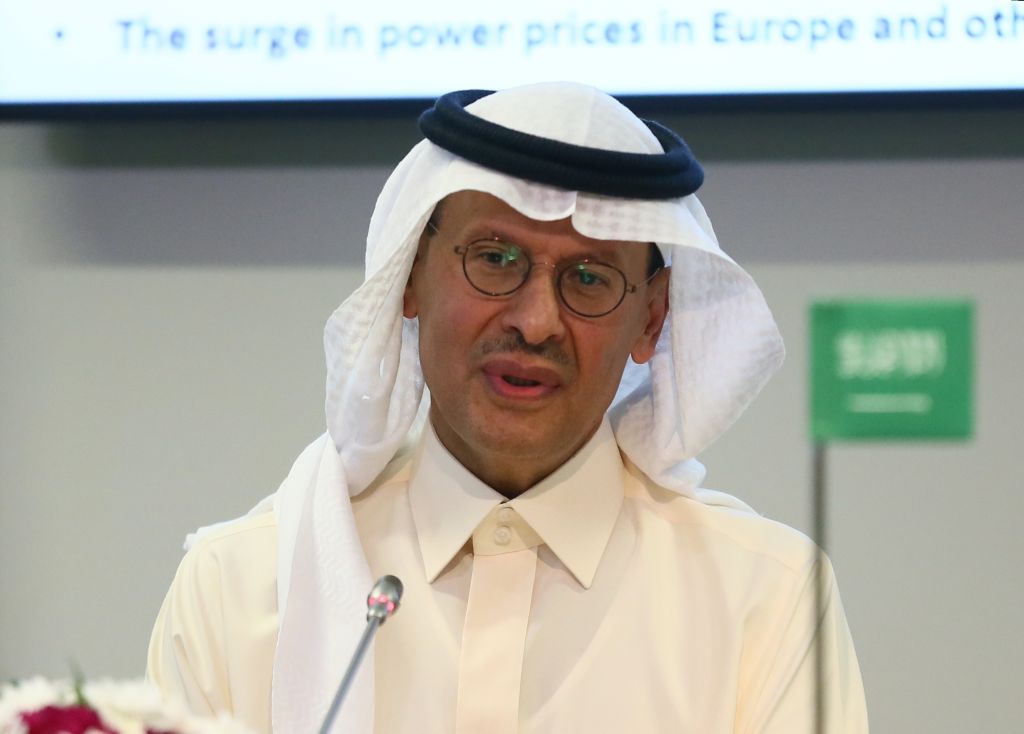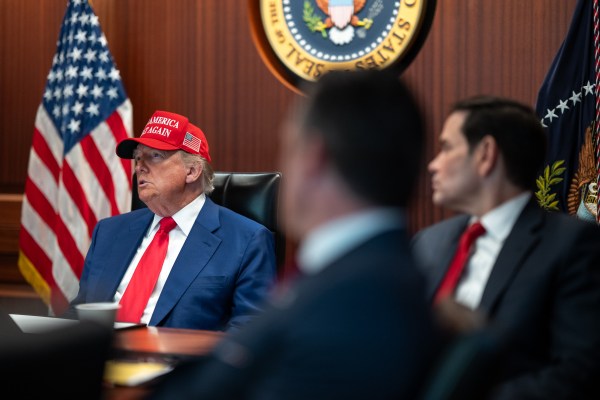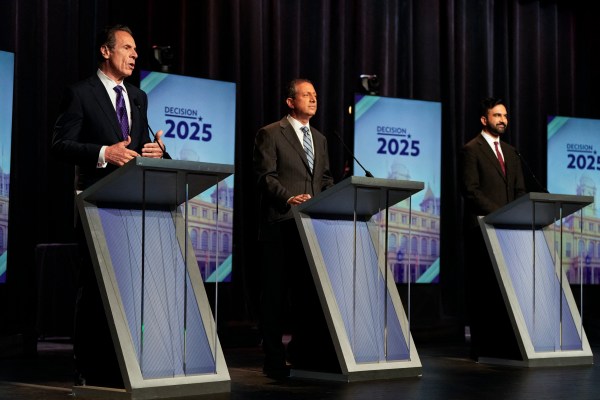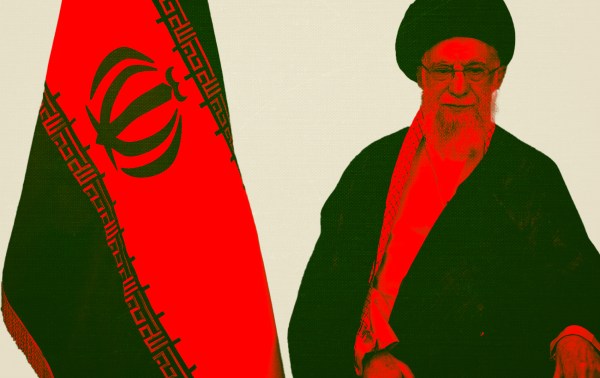For more than a decade, Saudi Arabia has built up nuclear infrastructure for the stated purpose of diversifying its domestic energy mix and serving as a future global nuclear supplier. And officials have long spoken of the need to acquire a nuclear deterrent if Iran builds its own such weapons. At a mining conference in January, Saudi energy minister Prince Abdulaziz bin Salman al-Saud declared that Riyadh intends to master the full nuclear fuel cycle, including enrichment of uranium. He said the kingdom would pursue “the production of yellowcake, low enriched uranium and the manufacturing of nuclear fuel both for our national use and of course for export.”
The Saudis have no current need for the nuclear material, and they could meet any future requirements at a lower price with imported fuel rather than domestic enrichment.
This policy would further destabilize the Middle East. As such, the United States should counter Riyadh’s efforts to acquire enrichment capabilities both through incentives that deepen the U.S.-Saudi security relationship and counterproliferation initiatives that limit the kingdom’s nuclear options.
Saudi nuclear hedging.
Saudi Arabia has no operational nuclear reactors, but it is reportedly considering reactor construction proposals from China, Russia, and South Korea. Unfortunately, bilateral U.S.-Saudi nuclear cooperation currently provides little leverage to ensure oversight of Saudi activities so that civilian capabilities do not facilitate a weapons program.
During both the Obama and Trump administrations, the kingdom would not agree to Washington’s terms for a nuclear cooperation agreement, which provides a legal basis for the U.S. to share nuclear technology. Riyadh refused to include strong nonproliferation and safeguards requirements in a bilateral accord, so progress stalled. This leaves U.S.-based companies that build reactors and supply nuclear fuel, such as Westinghouse, unable to pursue civil nuclear sales.
Signing an agreement with Beijing or Moscow would free the Saudis from agreeing to the tough stipulations the U.S. sought, such as signing an enhanced inspection agreement with the International Atomic Energy Agency (IAEA)—committing not to enrich uranium or reprocess plutonium, another route to making atomic weapons fuel.
A 2011 agreement South Korea signed with Saudi Arabia has problems of its own. It prohibits plutonium reprocessing absent Seoul’s consent but allows enrichment of uranium below 20 percent purity—a key step toward enriching fuel for a weapon. Nor does that agreement require Riyadh to sign the enhanced inspection agreement, although a U.S.-South Korean agreement specifies that Washington and Seoul will only provide nuclear technology to countries that have done so. This could force Saudi Arabia to sign the protocol should it accept South Korea’s reactor proposal.
Nevertheless, concern regarding Iran looms as a major obstacle to Saudi cooperation. In 2018, Saudi Crown Prince Mohammed bin Salman made clear that Riyadh would seek parity with Iran: “Without a doubt if Iran developed a nuclear bomb, we would follow suit as soon as possible.”
In 2020, U.S. intelligence officials leaked concerns to the New York Times and the Wall Street Journal about Saudi Arabia building a secret uranium milling facility with Chinese assistance, and possibly another undeclared uranium mining facility. The Saudis categorically denied the reports. The facilities’ status is still unclear, and the IAEA has not inspected the sites. A capacity to mine and mill uranium would represent two initial steps in Saudi Arabia’s development of the full nuclear fuel cycle—which could later include uranium conversion and enrichment.
Pursuit of uranium enrichment, a process most commonly done via gas centrifuge, would provide Saudi Arabia with the means to create fuel for nuclear weapons. Even if the Saudis initially produced low-enriched uranium for nuclear reactors—typically uranium enriched to 3 to 5 percent purity—Riyadh could quickly shift to producing atomic weapons-grade uranium.
Iran surges ahead.
Meanwhile, in an expansion facilitated by the Biden administration’s diplomacy-first approach, Iran is powering ahead with its own program. In April 2021, following a few minor technical modifications, Tehran for the first time achieved 60 percent enrichment. This represents some 99 percent of the technical effort to make weapons-grade uranium, or uranium enriched to at least 90 percent purity. As of November 2022, Iran had enough enriched uranium of several purity levels to produce fuel for up to six nuclear weapons within three months, with an estimated several additional months required to fabricate a nuclear explosive.
In December, the Saudi foreign minister took note of Iran’s growing proximity to atomic weapons, warning: “If Iran gets an operational nuclear weapon, all bets are off.”
Saudi Arabia is not currently known to possess uranium enrichment technology and would need to import tightly controlled materials to build a program—but could speed its pathway to nuclear weapons with covert assistance.
Pakistan and Saudi Arabia have reportedly maintained a secret agreement for nuclear weapons assistance since Riyadh, starting in the 1970s, funded Islamabad’s nuclear weapons program and development of an atomic arsenal. Pakistan or China could provide gas centrifuges and related know-how, a nuclear weapon design, and weaponization or missile-delivery assistance. Prior to 2004, Islamabad’s quasi-independent A.Q. Khan network outfitted several countries with nuclear technology. China, in turn, assisted Pakistan’s early nuclear weapons effort and is allegedly providing help on the Saudi facilities identified by U.S. intelligence.
Troublingly, Saudi Arabia may be deliberately obstructing international oversight of its nuclear activities for as long as possible, a possibility suggested by its failure to bring into force enhanced IAEA oversight agreements and inspections. Instead of a “comprehensive safeguards agreement” with the IAEA, Riyadh maintains an outdated “small quantities protocol (SQP).” With only the old-model SQP in place, Saudi Arabia does not have to notify the IAEA about plans to produce nuclear material as soon as a decision is made to construct related facilities—which helps account for the unknown status of uranium facilities. Its failure to sign an enhanced inspection agreement means the IAEA has limits on inspection access and lacks more information about Saudi plans.
A better way.
Confrontation alone is unlikely to deter the Saudis from pursuing enrichment capabilities. Rather, if Washington expects full cooperation, it should address their security concerns.
To begin, the Biden administration should renew the push for a bilateral U.S.-Saudi agreement on nuclear cooperation accord in which Riyadh forgoes uranium enrichment and plutonium reprocessing—provisions that constitute the “gold standard” of nonproliferation. The United Arab Emirates (UAE) committed to the gold standard in 2009. If Saudi Arabia agrees, the White House should bring both Riyadh and Abu Dhabi into an exclusive club of U.S. partners, those granted major non-NATO ally (MNNA) status.
MNNA status facilitates greater defense cooperation, easier transfer of U.S. military items, expedited U.S. export licenses, and joint research and development initiatives, among other benefits. Such status would bring Saudi Arabia into the security fold of other MNNAs such as Australia, Brazil, Israel, Japan, and South Korea—and reduce its drive to match Iran. MNNA status would also limit the effect of changing political winds in Washington on defense transfers to Saudi Arabia.
Providing MNNA status to the UAE and ensuring the Saudis do not enrich uranium would also solidify the gold standard for Abu Dhabi and ensure it does not pursue an enrichment program of its own.
U.S. law authorizes the secretary of defense along with the secretary of state to designate MNNA states after 30-day notification to Congress. Although Saudi Arabia is an authoritarian regime with a problematic human rights record, the kingdom is in the midst of a social transformation that has begun to expand women’s rights while diversifying Saudi culture. Moreover, Washington has granted MNNA status to other, similar governments—most recently Qatar. With a Republican majority in the House and following administration outreach to key Democratic allies on Capitol Hill, it is unlikely that Congress would succeed in passing legislation to override MNNA designation.
The Biden administration should also encourage South Korea to modify its existing nuclear cooperation agreement with Riyadh to expressly prohibit the use of nuclear equipment and materials for enrichment or reprocessing. Stronger safeguards and gold standard provisions in both South Korean-Saudi and U.S.-Saudi agreements could pave the way for U.S. and South Korean reactor sales and/or profit sharing.
The earlier the IAEA can provide oversight of Saudi nuclear activities through that nation’s embrace of a comprehensive safeguards agreement and the enhanced inspection agreement , the better the result for regional security and nonproliferation.
In addition, the United States should make clear to Riyadh that we will not sit by idly as Iran advances to the nuclear threshold. It should announce a new, comprehensive strategy against Iran that uses all instruments of American power to coercively deter and severely weaken the regime, while rolling back Iran’s aggression. This strategy should seek to limit Iran’s nuclear program, rather than encourage Saudi Arabia or other countries in the region to seek equivalence.
If the Saudis refuse a cooperative approach, the Biden administration should make clear that the bilateral relationship will be negatively impacted by Saudi enrichment. It should push the Nuclear Suppliers Group (NSG), a consortium of nuclear-supplying states, to discourage countries from selling the Saudis uranium enrichment technology. Pakistan is not a member of the NSG, so Washington will need to pursue the matter bilaterally, including a threat of sanctions should Islamabad try to make good on its reported agreement with the Saudis. U.S. intelligence agencies need to do their part, too, exercising additional vigilance over Riyadh’s illicit procurements from Pakistan or elsewhere.
Saudi enrichment would not only further destabilize the Middle East, it would propel other nations, such as the UAE, Turkey, and Egypt, to start their own nuclear fuel production programs and ensure the current Iranian regime never abandons enrichment. Admittedly, the Biden administration must overcome its frequent antagonism toward Riyadh to deepen its security relationship with the Saudis. But given current geopolitical and energy security realities, a stronger relationship would benefit both sides.






Please note that we at The Dispatch hold ourselves, our work, and our commenters to a higher standard than other places on the internet. We welcome comments that foster genuine debate or discussion—including comments critical of us or our work—but responses that include ad hominem attacks on fellow Dispatch members or are intended to stoke fear and anger may be moderated.
With your membership, you only have the ability to comment on The Morning Dispatch articles. Consider upgrading to join the conversation everywhere.